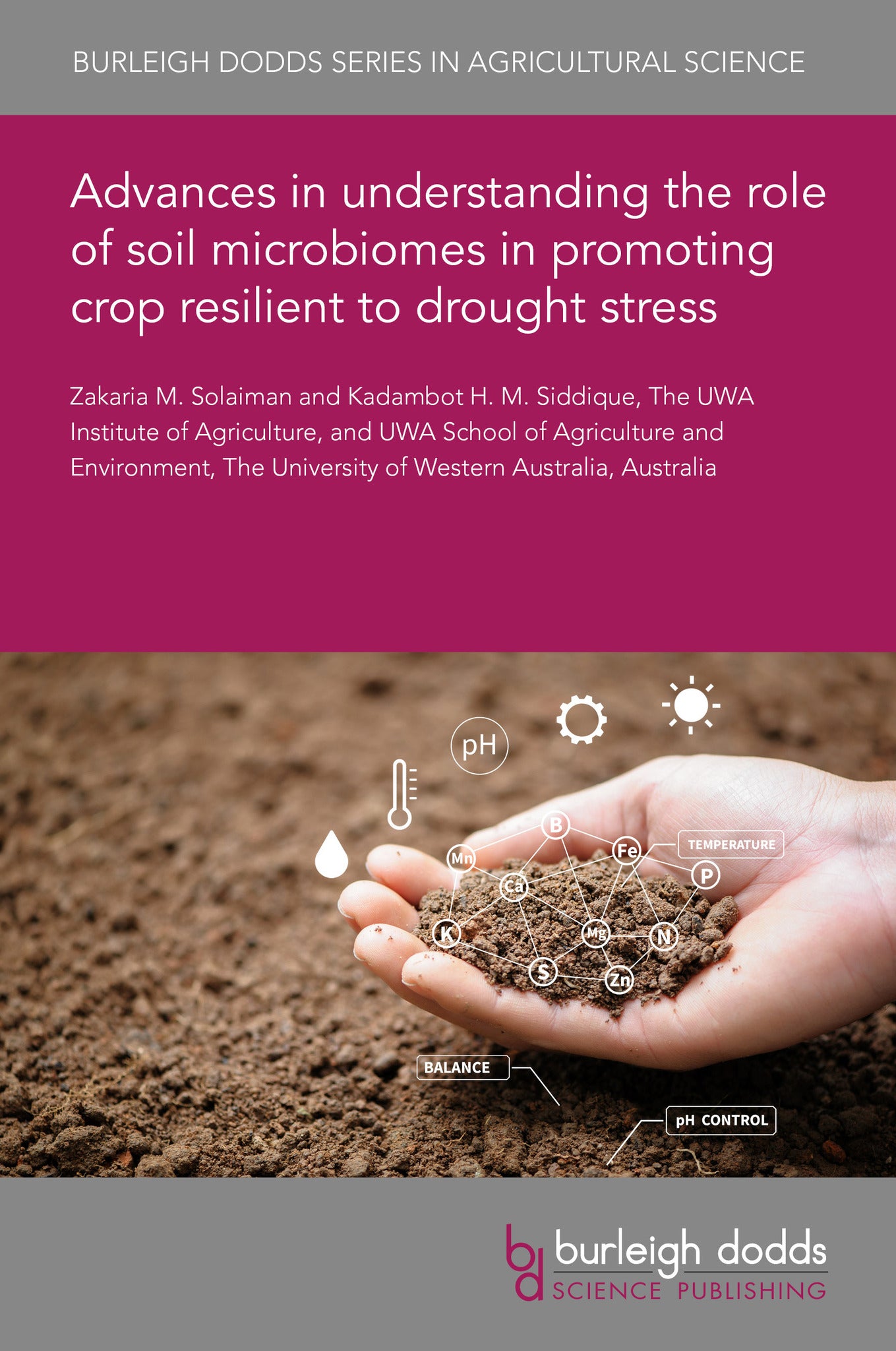We're sorry. An error has occurred
Please cancel or retry.
Advances in understanding the role of soil microbiomes in promoting crop resilience to drought stress

Some error occured while loading the Quick View. Please close the Quick View and try reloading the page.
Couldn't load pickup availability
- Format:
-
29 May 2025

Agricultural productivity varies frequently as a result of environmental changes. Abiotic stresses, such as nutrient deficiencies, drought, salinity, flooding, high temperature, heavy metal toxicities, and oxidative stress, cause irretrievable damage, resulting in plant growth and yield loss. The relationship between plants and microbiomes is a highly dynamic system. The plant microbiome consists of symbiotic and free-living plant growth-promoting bacteria and fungi. In the last era, many microbes that give hosts the ability to withstand abiotic stresses have been well-studied. Their beneficial association with plants allows the plant to endure different abiotic stresses imposed on it, thereby enhancing its sustainable productivity. For sustenance, it is crucial to comprehend microbiome-assisted mechanisms for extenuating abiotic stresses. This chapter reviews the wealth of knowledge on the roles of various microorganisms in mitigating abiotic stresses, focussing largely on drought stress.

TECHNOLOGY & ENGINEERING / Agriculture / Agronomy / Soil Science, Soil science and management, TECHNOLOGY & ENGINEERING / Agriculture / Agronomy / Crop Science, TECHNOLOGY & ENGINEERING / Agriculture / Sustainable Agriculture, Agronomy and crop production, Sustainable agriculture

- 1 Introduction
- 2 Microbes involved in the mitigation of drought stress
- 3 Impact of drought stress on soil, plant, and microbes
- 4 Mechanisms of microbes-mediated drought stress tolerance
- 5 Conclusion
- 6 Future trends
- 7 Challenges to research
- 8 Author contributions
- 9 Where to look for further information
- 10 Funding
- 11 Acknowledgments
- 12 References



